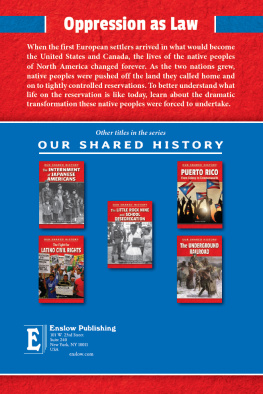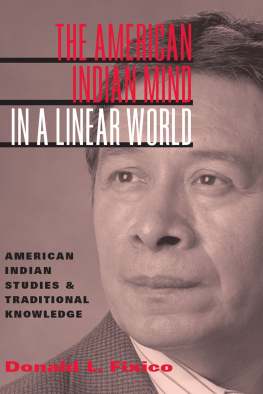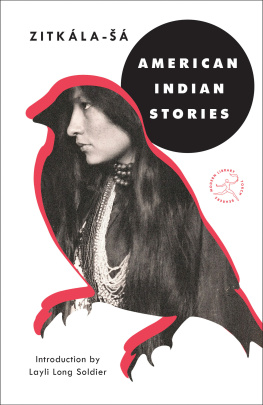THE TRUTH
ABOUT STORIES
A Native Narrative
THOMAS KING

Copyright 2003 Dead Dog Caf Productions Inc. and the Canadian Broadcasting Corporation
All rights reserved. No part of this publication may be reproduced or transmitted in any form or by any means, electronic or mechanical, including photocopying, recording, or any information storage and retrieval system, without permission in writing from the publisher.
Distribution of this electronic edition via the Internet or any other means without the permission of the publisher is illegal. Please do not participate in electronic piracy of copyrighted material; purchase only authorized electronic editions. We appreciate your support of the authors rights.
This edition published in 2010 by
House of Anansi Press Inc.
110 Spadina Avenue, Suite 801
Toronto, ON, M5V 2K4
Tel. 416-363-4343
Fax 416-363-1017
www.anansi.ca
CBC and Massey College logos used with permission.
The publisher gratefully acknowledges kind permission to reprint excerpts from the following: (pp. 44, 93, and 95) I Hear the Train: Reflections, Inventions, Refractions by Louis Owens, 2001 University of Oklahoma Press. Used by permission. (p. 62) The Halfbreed Blues by Andrea Menard, words and music 2000 Andrea Menard, SOCAN. Used by permission.
LIBRARY AND ARCHIVES CANADA CATALOGUING IN PUBLICATION
King, Thomas, 1943
The truth about stories: a native narrative / Thomas King.
(CBC Massey lectures series)
eISBN: 978-0-88784-895-7
I. Title. II. Series.
PS8571.I5298T77 2003 C813'.54 C2003-904921-3
Cover design: Bill Douglas
Cover photo: Thomas King

We acknowledge for their financial support of our publishing program the Canada Council for the Arts, the Ontario Arts Council, and the Government of Canada through the Canada Book Fund.
For Helen, who has heard these stories before
I
YOULL NEVER BELIEVE
WHAT HAPPENED
IS ALWAYS A GREAT WAY
TO START
THERE IS A STORY I KNOW. Its about the earth and how it floats in space on the back of a turtle. Ive heard this story many times, and each time someone tells the story, it changes. Sometimes the change is simply in the voice of the storyteller. Sometimes the change is in the details. Sometimes in the order of events. Other times its the dialogue or the response of the audience. But in all the tellings of all the tellers, the world never leaves the turtles back. And the turtle never swims away.
One time, it was in Prince Rupert I think, a young girl in the audience asked about the turtle and the earth. If the earth was on the back of a turtle, what was below the turtle? Another turtle, the storyteller told her. And below that turtle? Another turtle. And below that? Another turtle.
The girl began to laugh, enjoying the game, I imagine. So how many turtles are there? she wanted to know. The storyteller shrugged. No one knows for sure, he told her, but its turtles all the way down.
The truth about stories is that thats all we are. The Okanagan storyteller Jeannette Armstrong tells us that Through my language I understand I am being spoken to, Im not the one speaking. The words are coming from many tongues and mouths of Okanagan people and the land around them. I am a listener to the languages stories, and when my words form I am merely retelling the same stories in different patterns.
When I was a kid, I was partial to stories about other worlds and interplanetary travel. I used to imagine that I could just gaze off into space and be whisked to another planet, much like John Carter in Edgar Rice Burroughss Mars series. Id like to tell you that I was interested in outer space or that the stars fascinated me or that I was curious about the shape and nature of the universe. Fact of the matter was I just wanted to get out of town. Wanted to get as far away from where I was as I could. At fifteen, Pluto looked good. Tiny, cold, lonely. As far from the sun as you could get.
Im sure part of it was teenage angst, and part of it was being poor in a rich country, and part of it was knowing that white was more than just a colour. And part of it was seeing the world through my mothers eyes.
My mother raised my brother and me by herself, in an era when women were not welcome in the workforce, when their proper place was out of sight in the home. It was supposed to be a luxury granted women by men. But having misplaced her man, or more properly having had him misplace himself, she had no such luxury and was caught between what she was supposed to be invisible and female and what circumstances dictated she become visible and, well, not male. Self-supporting perhaps. That was it. Visible and self-supporting.
As a child and as a young man, I watched her make her way from doing hair in a converted garage to designing tools for the aerospace industry. It was a long, slow journey. At Aerojet in California, she began as a filing clerk. By the end of the first year, she was doing drafting work, though she was still classified and paid as a filing clerk. By the end of the second year, with night school stuffed into the cracks, she was doing numerical-control engineering and was still classified and paid as a filing clerk.
It was, after all, a mans world, and each step she took had to be made as quietly as possible, each movement camouflaged against complaint. For over thirty years, she held to the shadows, stayed in the shade.
I knew the men she worked with. They were our neighbours and our friends. I listened to their stories about work and play, about their dreams and their disappointments. Your mother, they liked to tell me, is just one of the boys. But she wasnt. I knew it. She knew it better.
In 1963, my mother and five of her colleagues were recruited by the Boeing Company to come to Seattle, Washington, as part of a numerical-control team. Everyone was promised equal status, which, for my mother, meant being brought into Boeing as a fully fledged, salaried engineer.
So she went. It was more money, more prestige. And when she got there, she was told that, while everyone else would be salaried and would have engineer status, she would be an hourly employee and would have the same status as the other two women in the department, who were production assistants. So after selling everything in order to make the move, she found herself in a job where she made considerably less than the other members of the team, where she had to punch a time clock, and where she wasnt even eligible for benefits or a pension.
She objected. That wasnt the promise, she told her supervisor. You brought everyone else in as equals, why not me?
She didnt really have to ask that question. She knew the answer. You probably know it, too. The other five members of the team were men. She was the only woman. Dont worry, she was told, if your work is good, youll get promoted at the end of the first year.
So she waited. There wasnt much she could do about it. And at the end of the first year, when the review of her work came back satisfactory, she was told she would have to wait another year. And when that year was up...
I told her she was crazy to allow people to treat her like that. But she knew the nature of the world in which she lived, and I did not. And yet she has lived her life with an optimism of the intellect and an optimism of the will. She understands the world as a good place where good deeds should beget good rewards. At eighty-one, she still believes that that world is possible, even though she will now admit she never found it, never even caught a glimpse of it.
Next page







